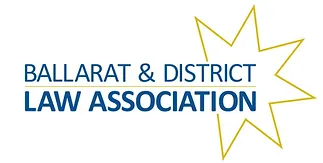A Guide To Writing A Character Reference For The Courts
If you are going to plead guilty in the Magistrates Court of Victoria or County Court of Victoria, you need to understand the significance of character reference letters for your Court proceedings. Facing Court for any legal matter can be overwhelming and stressful, so we have developed a guide for your referee to help you with your legal proceedings.
Your referee’s letter to the Court could make a substantial difference to the sentence that you are handed.
WHAT IS A CHARACTER REFERENCE?
A character reference is a letter (usually typed and signed) from a person of good character and reputation. It is a letter about the person facing Court, where an individual writes about the character, values, actions and emotions involved which may have led to the accused being prosecuted in Court.
When the
Magistrate or Judge reads the reference, they seek a better understanding of who you are, which is beyond the charges you are facing. As someone who knows you personally, their perspective can provide invaluable context to the Court’s decision-making process. Typically, the best character references come from a family member, a close or long-term friend, or someone who has worked with you for a significant period.
HOW SHOULD A CHARACTER REFERENCE BE FORMATTED?
A character reference should be typed, dated, and signed with your full name, address and occupation. It should be addressed to “The Presiding Magistrate” or “The Presiding Judge” of the Court you have to go to.
Ideally, the reference should be no longer than one page. If the reference is composed in an official capacity, such as by an employer, it should be on letterhead and signed.
WHAT SHOULD YOUR REFEREE INCLUDE?
Keep in mind that the reference must stand by itself. The Court will not contact your referee for clarification; they will not need to speak in Court for your proceedings. The reference must show that your referee is aware of the specific charge you are facing in Court, for example, “I am aware that [name] has been charged with drug possession”.
They should explain the length and circumstances of their relationship with you and their opinion of you, for example, whether you are responsible, hardworking, or honest. It can be valuable to include any knowledge they have about any community involvement accompanied by any participation you have had in various clubs, groups, or volunteer organisations.
Your referee must remember that the Court sees many character references, and generalised positive statements will have little impact. Your reference must try to paint a realistic picture of your character with relevant examples and stories, such as a story illustrating your honesty. This is especially important if you are being charged with a dishonesty offence like theft, deception, or fraud.
If your referee is aware of personal circumstances that have contributed to the actions before the Court, they should refer to these. However, ensure that in covering these circumstances, your referee does not pass the blame onto others or imply that you are not responsible for your actions.
If your referee is your employer, they should clearly state how a conviction will, or may, affect your ability to do your job or continue in employment.
Before submitting the character reference, proofread it carefully to eliminate grammatical errors or inconsistencies. Ensure that the content aligns with your referee’s genuine observations and feelings.
WHAT SHOULDN’T BE INCLUDED IN YOUR REFERENCE?
Your referee shouldn’t include something that is not true. It is an offence to mislead the Court. We recommend the referee confirm any details with you or contact us for expert recommendations. They should enquire whether you have any prior criminal offences, especially of the same or similar nature.
They should not include their opinion of the merits of the law or the victim. Neither opinion is of interest to the Court.
Lastly, a referee should not make recommendations regarding the penalty that the Court should impose.
CONTACT THE EXPERTS AT DAVID TAMANIKA SOLICITORS
If you have been charged with any criminal offence, seeking advice from one of our experienced lawyers here at David Tamanika Solicitors is vital. Please get in touch with us on 03 5331 7944 , or please send us an email at admin@davidtamanika.com.au.
This update does not constitute legal advice and should not be relied upon as such. It only provides a summary and general overview of matters of interest.
← Decoding Intervention Orders Can I Appeal an Intervention Order or Change the Conditions →
Site links
Services
COURTHOUSE
BAllarat Magistrates COURT
Ararat Magistrates COURT
BACCHUS MARSH MAGISTRATES COURT
Trading Hours
- Monday
- -
- Tuesday
- -
- Wednesday
- -
- Thursday
- -
- Friday
- -
- Saturday
- Closed
- Sunday
- Closed




















